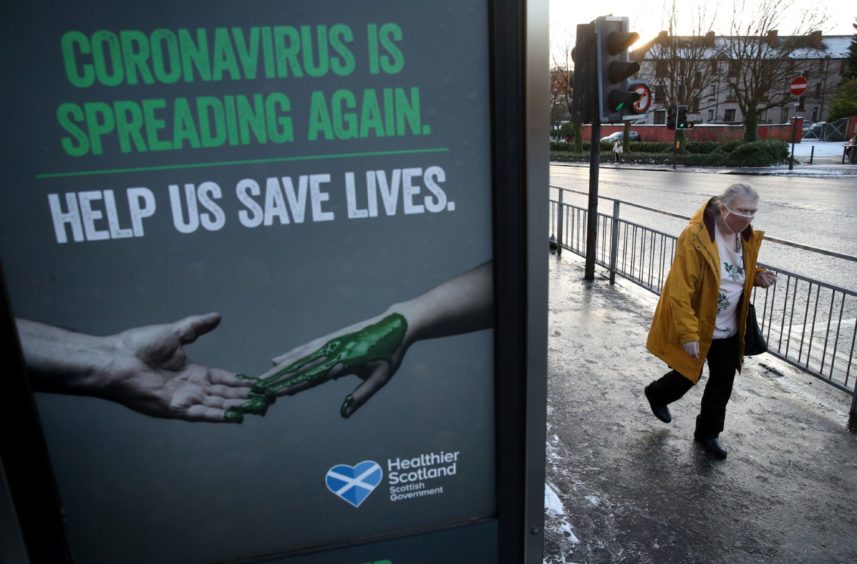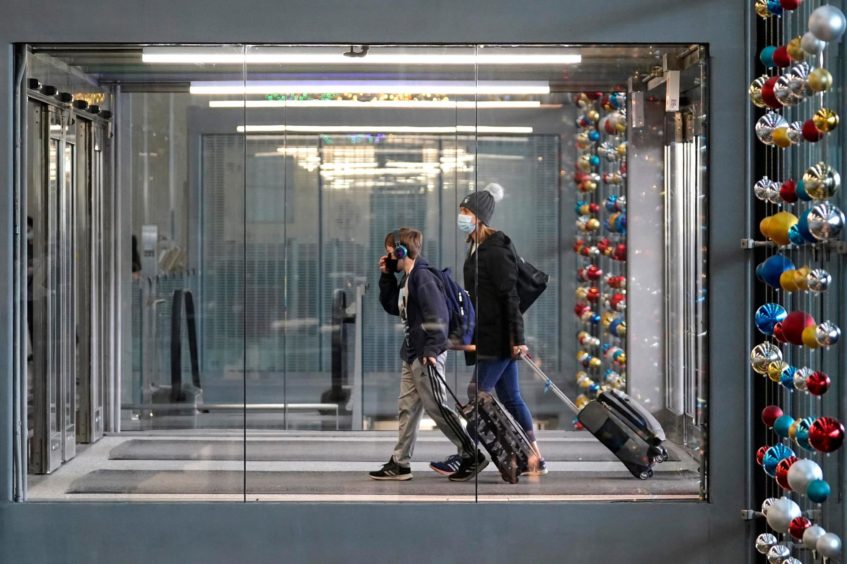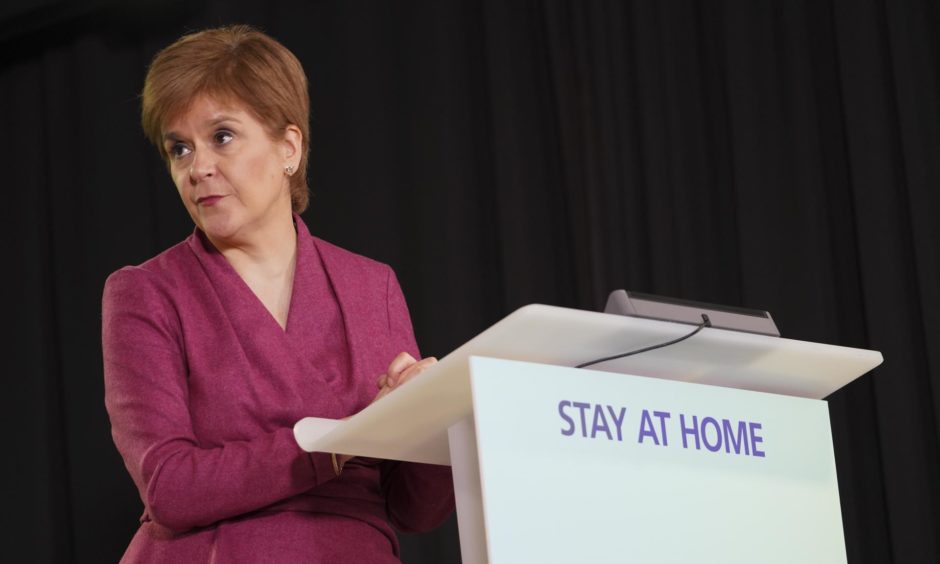“More than at any time in any of our lifetimes, it’s down to all of us” to help keep the NHS afloat, Nicola Sturgeon has said, amid a warning that Tayside is just days away from exceeding coronavirus hospital capacity.
The first minister said the current challenges are “more severe than any situation our health service has faced” in her entire time in government, as the number of people who have died since testing positive for Covid-19 surged above 5,000 for the first time.
The SNP leader met her cabinet on Monday to discuss toughening up coronavirus rules even further, including possible new restrictions on takeaways, click and collect services and “non-essential” construction work.
Ms Sturgeon said she does not expect any new area-specific measures to be introduced when she updates Parliament on Wednesday but warned there may not be any easing of restrictions until at least the end of the month.
It comes after new data revealed Tayside could be just days away from running out of specialist Covid-19 beds, with a similar situation already facing central belt health boards such as NHS Ayrshire and Arran and NHS Lanarkshire.
Current reported hospital capacity will be met in just two days – and exceeded in three – if hospitalisations continue to grow in Tayside at the current rate. Managers are now looking to scale up the number of available beds in the region.
Speaking at the the Scottish Government’s daily briefing in Edinburgh, Ms Sturgeon said that if a particular hospital or health board is unable to manage the capacity within its own boundaries, “mutual aid” will be introduced.
This could include patients requiring specialist hospital care being transferred from one centre to another or to a different area of the country altogether.
“It’s one of the advantages of having a relatively small country, that we can manage that capacity on an overall basis,” Ms Sturgeon said.
“But (the situation) is very, very stretched right now. The health service will seek to manage it, the government will support them to do that but more than at any time in any of our lifetimes, it’s down to all of us to help the health service.
“Every time we avoid putting ourselves in a situation where we might get the virus, we are also avoiding the potential for us needing hospital care or intensive care, so we are helping the health service. And that really is something that all of us have got to play our part in.”
A grim new milestone
The latest daily coronavirus statistics show 54 deaths were recorded in the 24 hours into Tuesday, bringing the total number of fatalities to 5,023.
But the most recent figures from the National Records of Scotland – which records all deaths registered in Scotland where Covid-19 was mentioned on the death certificate – suggest the true total is 6,686.
Hospital numbers also continue to rise, with 1,717 people in hospital confirmed to have the virus, up 53 in 24 hours, and 133 patients in intensive care, an increase of seven. A total of 1,875 positive tests was also recorded in the previous 24 hours.
Next week ministers will review the current lockdown restrictions and decide whether it will be extended into next month, and Ms Sturgeon warned it is unlikely the rules will be eased significantly, if at all, following the review.

“I wouldn’t want to raise expectations that we will lift all of these restrictions at the end of January,” she said. “I think it would be very unlikely that we would have a wholesale lifting of these restrictions.
“There may not be any lifting of these restrictions as soon as the end of January. We will have to consider all of that carefully and set that out in due course.”
Tighter controls and travel restrictions
The first minister said plans to bring the virus under control could include tightening up how takeaways operate to limit the potential for people to gather inside.
Ms Sturgeon added: “If we are saying to people right now that you should not be out of your home for shopping unless it is essential, then do we need to have click and collect for non-essential services instead of having that for delivery?”
Outlining travel restrictions to tackle the virus, she said anyone coming to Scotland will need to show proof of a negative test from Friday.

The first minister said those arriving in the country after 4am on Friday will need evidence from the past three days that they have tested negative. Those travelling from countries not on the quarantine exemption list will still need to self-isolate on arrival.
The test will need to be “highly reliable”, she said, most likely meaning it will have to be a PCR test. Young children may be exempt from the requirement.
“I want to be very clear here: this requirement for testing before entry to the country is seen not as a substitute for the protections and mitigations in place, but as an addition to those,” Ms Sturgeon said.
“Testing before entry to the country is not a magic solution to the risk of cases being imported, so it will reinforce rather than replace our current travel restrictions.”
